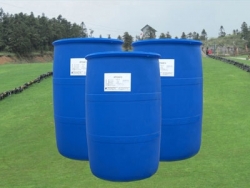Surfactants are often used in industrial industries, and most of them are used in the laundry and textile industries, but they cannot be used in all fine industries. All of our industrial industries, including the pharmaceutical industry, are also inseparable from the use of surfactants, and the paper industry is also a field of the fine industrial industry, and surfactants are also used in the paper industry.

In the pharmaceutical industry, surfactants are often used in pharmaceuticals to increase liquidity, which can make many difficult-to-dissolve substances into transparent solutions and also increase the concentration of solutions. Moreover, in the pharmaceutical industry, surfactants are also used in the use of bactericides and disinfectants, which can make bacterial biofilm proteins denature or even lose their original functions through strong interaction with bacterial biofilm proteins, so the role of surfactants is very powerful and their applications are very extensive.
In our normal flame retardant process, the heating and steaming process is generally carried out openly, resulting in the evaporation of flame retardant liquid too quickly, and often a flame retardant process requires constant addition of water to the flame retardant pool. So that the wood absorbed flame retardant liquid from the high concentration state dissolved to low concentration, then absorbed to high concentration, then dissolved to low concentration, and then reduce the amount of dry salt absorbed by the wood flame retardant liquid.
However, if the flame retardant is covered, firstly, it can avoid adding raw water during the flame retardant process, secondly, it can ensure that the concentration of flame retardant liquid in the flame retardant pool will not be high or low, and thirdly, it can also save energy. If it is still impossible to avoid adding water in the middle of the process, the prepared flame retardant liquid should be added to ensure that the concentration of the flame retardant liquid in the flame retardant pool is constant.
In response to the popular saying "halogen-free is environmentally friendly" in today's society, experts in the flame retardant industry clearly put forward the view that "halogen-free is not synonymous with environmental friendliness" at one of the Chinese Flame Retardant Society, and it was generally accepted by the industry. To scientific view of various types of flame retardants, halogen-containing and halogen-free flame retardants of new technologies, new product development to balanced development, can not simply think that halogen-free is environmentally friendly. These experts believe that the judgment of flame retardants and environmental protection, and whether it contains halogen is not necessarily linked.
Translated with www.DeepL.com/Translator (free version)